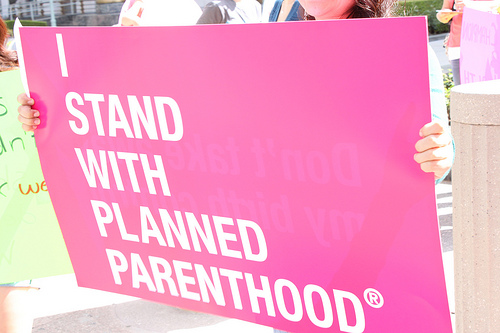PR agency pundits and brand watchers love to create “best and worst” lists around marketing and communications developments. The emphasis usually falls on the “worsts” – like the most badly handled crisis situations, mangled cover-ups, or PR stunts that backfired.
It’s easy to criticize, but what about giving credit for crises averted or PR battles won? That list is shorter and far less obvious, but here are my nominations.
JC Penney. Penney’s reputation has been worn down in the past year. First, it was outed by The New York Times for “black hat” SEO practices last January. Then, it suffered a visual identity crisis leading up to the announcement of a bold new pricing strategy. Just as it built positive momentum for the “new” JCP, advocacy group One Million Moms threatened a store boycott over its choice of spokesperson Ellen DeGeneres. Rather than try to appease critics, the company stood by Ellen….and, in a brilliant move, it escaped the Lowe’s trap by letting her do most of the talking. Penney’s was betting that Ellen was far more popular than One Million Moms, and it was right. Ellen’s explanation of her “traditional values” is a PR home run. The boycott ended faster than a flash sale.
Planned Parenthood (PP). Most of the coverage of the Susan G. Komen/Planned Parenthood debacle focused on Komen’s lack of preparedness for the public reaction after it dropped PP from its grants program. But Planned Parenthood mounted a first-class response to the potential crisis. After offering an exclusive interview to the AP, it let loose a barrage of news releases and launched a social media campaign to mobilize fans. Its core strategy was simple; as spokesperson Tait Sye explained, “We gave people things to do.” PP circulated online petitions, shared tweets, posted comments, and launched a no-holds-barred media tour by telegenic CEO Cecile Richards. The public pressure forced SGK to backpedal within the week.
Taco Bell. A year ago, the fast-food chain was the target of a customer lawsuit that served up a potential PR disaster for its brand. A California woman smacked Taco Bell with deceptive marketing claims, saying its tacos have far less beef than advertised. Taco Bell wasted no time in firing back. The chain went on the offense, big time. It filed a countersuit, posted a video statement from the CEO, and dished out a saucy media campaign featuring the headline “Thank You for Suing Us!” The customer’s beef, and her lawsuit, were quietly dropped, ensuring Taco Bell a place in the annals of crisis management. Well done.
The Red Cross. It was only a rogue tweet, so the risk faced by The American Red Cross last year may not rise to the level of reputation crisis. But its handling of a staffer’s Twitter post about a beer party was a nice example of a measured response. After realizing the employee confused a personal account with a corporate one and shared plans for “gettingslizzerd” on @RedCross, the tweet was quickly deleted. Yet, importantly, it wasn’t ignored. The Red Cross used a light touch, noting, “We’ve deleted the rogue tweet but rest assured the Red Cross is sober and we’ve confiscated the keys.” Best of all, @DogfishBeer joined the fun by encouraging donations, and appropriate replenishment.
Justin Bieber. Oh, baby, what a mess this could have been. When the teen pop star was hit with a paternity suit from a fan who claimed Justin fathered her child, he recognized the risk to his popstar image. Guided by PR rep Matthew Hiltzik, Bieber delivered an unequivocal denial on The Today Show. Team Bieber then went one better by filing a countersuit and taking a paternity test to prove he was no baby daddy. His comment? “I know that I’m going to be a target, but I’m never going to be a victim,” hit the right notes. Well played.
o.b. Talk about facing the music. The J & J tampon brand was threatened with a “girlcott” by angry users after it discontinued its popular Ultra item. The customer backlash threatened to take over its reputation, until o.b. defused the situation with a unique response. Its apology PR campaign included a hilarious video that used personalization technology to woo back customers. “Triple Sorry” was a sublime send-up of an uber-schmaltzy music video, complete with rainbows and rose petals and a vow to bring back the product. It was a pitch-perfect response to a potential crisis with double credit to Canada for a downloadable product coupon.
Newt Gingrich. He’s known for flying by the seat of his pants, but the Speaker showed real PR savvy when he needed it most, just before the high-stakes South Carolina primary. His ex-wife’s ABC interview where she claimed he asked her for an “open marriage” could have dealt his campaign a death blow. But when CNN’s John King raised it at the start of the live debate, Gingrich was ready. He denied the story, but not before exploding in indignation and casting the media as the true guilty party. It may not be enough to save his candidacy, but it was a sound strategy that let Gingrich rally his base against that classic GOP enemy – the media.
This is an updated version of a post that originally appeared on MENGBlend.

